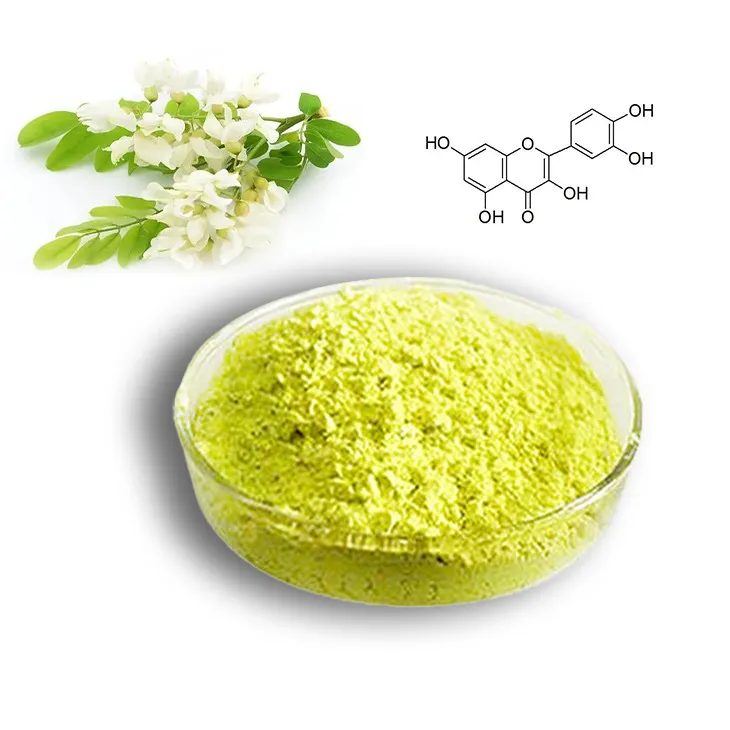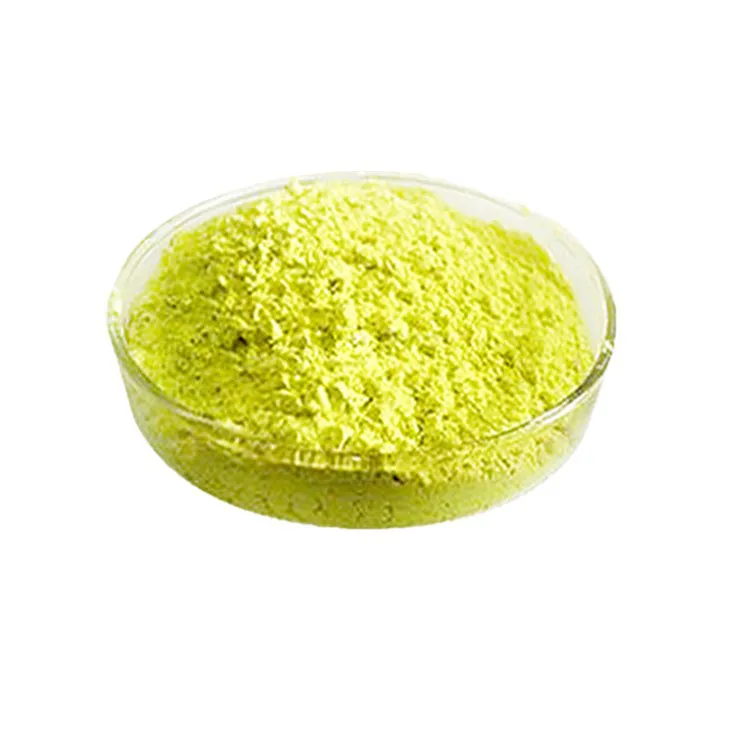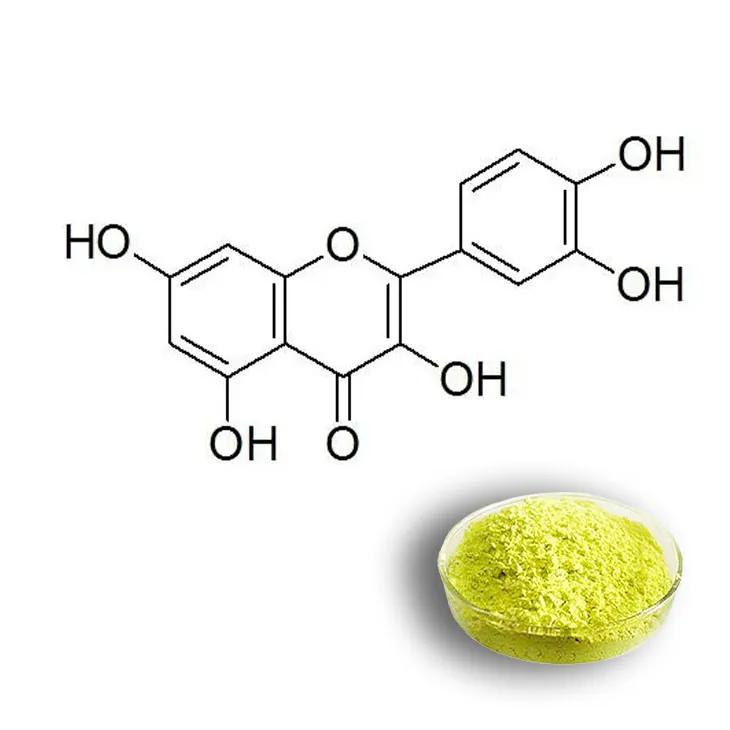- 0086-571-85302990
- sales@greenskybio.com
Best Answers to 7 Key Questions about Quercetin.
2024-12-23

1. Where to Find Quercetin?
Quercetin is a naturally occurring compound that can be found in a variety of foods. Fruits and vegetables are rich sources of Quercetin. For example, apples contain a significant amount, especially in the skin. Onions, both red and yellow, are also excellent sources. Additionally, berries such as strawberries, blueberries, and raspberries have quercetin. Leafy greens like kale and spinach also contribute to our quercetin intake.
Some herbs and spices are also good sources. Capers are known to have a relatively high concentration of quercetin. Green tea contains quercetin as well, along with other beneficial compounds. In addition to natural food sources, quercetin can also be obtained in supplement form. However, it is always important to choose high - quality supplements from reliable manufacturers.

2. How Does Quercetin Affect Our Health?
Quercetin has a wide range of effects on health. It is a powerful antioxidant. This means it helps to protect our cells from damage caused by free radicals. Free radicals are unstable molecules that can damage cells and contribute to the development of various diseases, such as cancer and heart disease.
Quercetin also has anti - inflammatory properties. It can help to reduce inflammation in the body. Chronic inflammation is associated with many health problems, including arthritis, diabetes, and certain autoimmune disorders. By reducing inflammation, quercetin may help to relieve symptoms and improve overall health.
Another important aspect of quercetin's effect on health is its potential role in immune system support. It may enhance the function of the immune system, helping the body to better fight off infections. Some studies suggest that quercetin can stimulate the activity of certain immune cells, such as white blood cells.

3. What Is the Proper Intake of Quercetin?
The proper intake of quercetin can vary depending on several factors. Age, gender, and overall health all play a role. For the general population, getting quercetin from a balanced diet that includes a variety of fruits, vegetables, and other food sources mentioned above is a good start.
When it comes to supplements, the recommended dosage can also vary. In general, typical dosages in supplement form range from 500 mg to 1000 mg per day. However, it is important to note that higher dosages may not always be better and may even carry some risks. It is advisable to consult a healthcare professional before starting any new supplement regimen, especially if you have pre - existing health conditions or are taking medications.

4. Are There Any Adverse Effects of Quercetin?
While quercetin is generally considered safe for most people when obtained from food sources, there can be some potential adverse effects when taking it in supplement form.
Some people may experience gastrointestinal issues such as stomach upset, nausea, or diarrhea. This is more likely to occur with higher dosages. Additionally, in rare cases, there may be allergic reactions, especially in individuals who are allergic to plants that contain quercetin.
There is also some concern about the long - term effects of high - dose quercetin supplementation. More research is needed to fully understand the potential risks associated with long - term, high - level intake.

5. How Does Quercetin Interact with Medications or Other Nutrients?
Quercetin can interact with certain medications and nutrients. For example, it may interact with blood - thinning medications such as warfarin. Quercetin has some anticoagulant properties of its own, and when combined with these medications, it may increase the risk of bleeding. Therefore, if you are taking blood - thinning medications, it is crucial to consult your doctor before taking quercetin supplements.
Quercetin may also interact with some antibiotics. It could potentially interfere with the absorption or effectiveness of certain antibiotics. Similarly, when it comes to nutrients, it can interact with other antioxidants. For instance, the combination of quercetin with vitamin C may have different effects compared to taking them separately. However, more research is needed to fully understand these interactions.
6. How Does Quercetin Get Absorbed?
The absorption of quercetin in the body is a complex process. Quercetin is a flavonoid, and its absorption depends on several factors. Food matrix plays a role. For example, the way quercetin is bound in different foods can affect its absorption. When consumed with fats, quercetin may be better absorbed as it can be incorporated into lipid - based structures for transport.
The body's digestive system also plays a crucial role. Quercetin needs to be broken down by enzymes in the gut to be absorbed. Once absorbed, it can be distributed throughout the body via the bloodstream to exert its various effects. However, the overall absorption rate of quercetin can be relatively low, which is one reason why higher intakes may be required to achieve certain health benefits.
7. What Is the Significance of Quercetin in Preventing Diseases?
Quercetin has significant potential in preventing diseases. In the context of heart disease, its antioxidant and anti - inflammatory properties may help to reduce the risk. It can help to lower blood pressure, improve cholesterol levels, and prevent the oxidation of LDL cholesterol, which is a major risk factor for heart disease.
In terms of cancer prevention, while it is not a cure, quercetin may play a role in inhibiting the growth and spread of cancer cells. Some studies have shown that it can interfere with the signaling pathways that cancer cells use to proliferate and metastasize. However, more research is needed to fully understand its potential in cancer prevention and treatment.
Quercetin may also be beneficial in preventing neurodegenerative diseases such as Alzheimer's and Parkinson's. Its antioxidant and anti - inflammatory effects may help to protect the brain cells from damage and reduce the risk of developing these diseases.
FAQ:
Where can quercetin be found?
Quercetin can be found in many natural sources. Fruits such as apples, berries (like blueberries, strawberries), and citrus fruits contain quercetin. Vegetables including onions, kale, and broccoli are also good sources. Additionally, some herbs and spices like capers and green tea have quercetin in them.
How does quercetin affect our health?
Quercetin has several potential health benefits. It is an antioxidant, which means it can help protect cells from damage caused by free radicals. It may also have anti - inflammatory properties, which could be beneficial for conditions related to chronic inflammation such as arthritis. There is some evidence suggesting that it might support heart health by reducing blood pressure and cholesterol levels. It may also play a role in boosting the immune system.
What is the proper intake of quercetin?
The proper intake of quercetin can vary depending on factors such as age, gender, and overall health. Currently, there is no established Recommended Dietary Allowance (RDA) for quercetin. However, in some studies, doses ranging from 500 to 1000 milligrams per day have been used for various health - related investigations. It is important to note that high - dose supplementation should be done under the guidance of a healthcare professional.
Are there any adverse effects of quercetin?
When taken in normal dietary amounts from food sources, quercetin is generally safe. However, when taken as a supplement in high doses, some people may experience side effects such as headache, nausea, or stomach upset. There may also be a risk of interactions with certain medications, which we will discuss later. Additionally, more research is needed to fully understand the long - term safety of high - dose quercetin supplementation.
How does quercetin interact with medications or other nutrients?
Quercetin may interact with some medications. For example, it may interfere with the absorption or effectiveness of certain drugs, such as antibiotics. It can also interact with blood - thinning medications, potentially increasing the risk of bleeding. In terms of nutrients, it may interact with other antioxidants. For instance, it can work together with vitamin C to enhance antioxidant activity. However, more research is required to fully understand these interactions.
How is quercetin absorbed?
Quercetin absorption is a complex process. After ingestion, it needs to be released from the food matrix or supplement form. It is then metabolized in the gut and liver. Some forms of quercetin are more easily absorbed than others. For example, quercetin glycosides need to be broken down into the aglycone form for better absorption. The presence of certain gut bacteria can also influence its absorption and metabolism.
What is the significance of quercetin in preventing diseases?
Quercetin's antioxidant and anti - inflammatory properties are thought to be key in disease prevention. In the context of cancer prevention, it may help protect cells from DNA damage that can lead to cancer development. For heart disease prevention, as mentioned earlier, it can contribute to better blood pressure and cholesterol management. It may also play a role in preventing neurodegenerative diseases by reducing inflammation in the brain, although more research is needed to confirm these effects.
Related literature
- Quercetin: A Versatile Flavonoid with Potential Health Benefits"
- "The Role of Quercetin in Human Health: An Overview"
- "Quercetin and Its Impact on Chronic Diseases"
- ▶ Hesperidin
- ▶ Citrus Bioflavonoids
- ▶ Plant Extract
- ▶ lycopene
- ▶ Diosmin
- ▶ Grape seed extract
- ▶ Sea buckthorn Juice Powder
- ▶ Fruit Juice Powder
- ▶ Hops Extract
- ▶ Artichoke Extract
- ▶ Mushroom extract
- ▶ Astaxanthin
- ▶ Green Tea Extract
- ▶ Curcumin
- ▶ Horse Chestnut Extract
- ▶ Other Product
- ▶ Boswellia Serrata Extract
- ▶ Resveratrol
- ▶ Marigold Extract
- ▶ Grape Leaf Extract
- ▶ New Product
- ▶ Aminolevulinic acid
- ▶ Cranberry Extract
- ▶ Red Yeast Rice
- ▶ Red Wine Extract
-
Dandelion Root Extract
2024-12-23
-
Tinospora cordifolia extract
2024-12-23
-
Milk Thistle Extract
2024-12-23
-
Avocado Extract Powder
2024-12-23
-
Curcumin
2024-12-23
-
Tamarind extract powder
2024-12-23
-
Carrageenan Extract Powder
2024-12-23
-
Medicinal Marshmallow Extract
2024-12-23
-
Passionflower Extract
2024-12-23
-
Tormentil Extract
2024-12-23





















